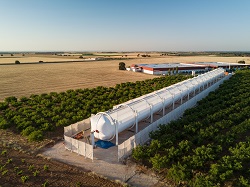Advanced simulation techniques help pilots make better in-flight decisions
Optimising in-flight trajectories, including overall mission profiles such as airport procedures, atmospheric conditions and aircraft state, can help to reduce emissions and noise. This can be achieved by carrying out mathematical optimisation and promptly alerting the pilot when a change in trajectory is required because of an unforeseen event. Decision-making approaches and models are very effective tools. With this in mind, the EU-funded TACTIC (In flight trajectory optimisation through advanced simulation technics) set out to evaluate a decision support system (DSS) which enables the pilot to be continuously aware of alternative paths. This will cut flight time, lessen fuel consumption, and consequently emissions and noise. Project partners analysed pilot behaviour in coping with unforeseen events with or without the assistance of an on-board DSS. They accurately evaluated and quantified the benefits of such an interactive tool by setting up a simulation environment that replicates present and future air traffic control and airborne system configurations. The TACTIC team performed a set of simulations to examine the impact of various pilot behaviours in the decision-making process when unforeseen events force a change in the reference trajectory. It also studied the impact of a DSS on pilot workload, situational awareness and aircraft/airspace performance such as fuel consumption, airspace capacity and efficiency, and noise abatement in all flight phases. TACTIC shed light on the real advantages of a DSS during emergencies for commercial pilots. Thanks to the project, projected time saved in making key decisions, less physical and psychological stress, and reduced emissions delivered by the DSS will no longer go unnoticed by the aircraft industry.







